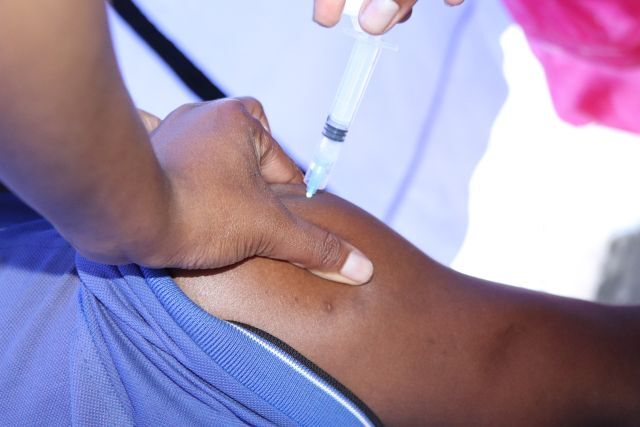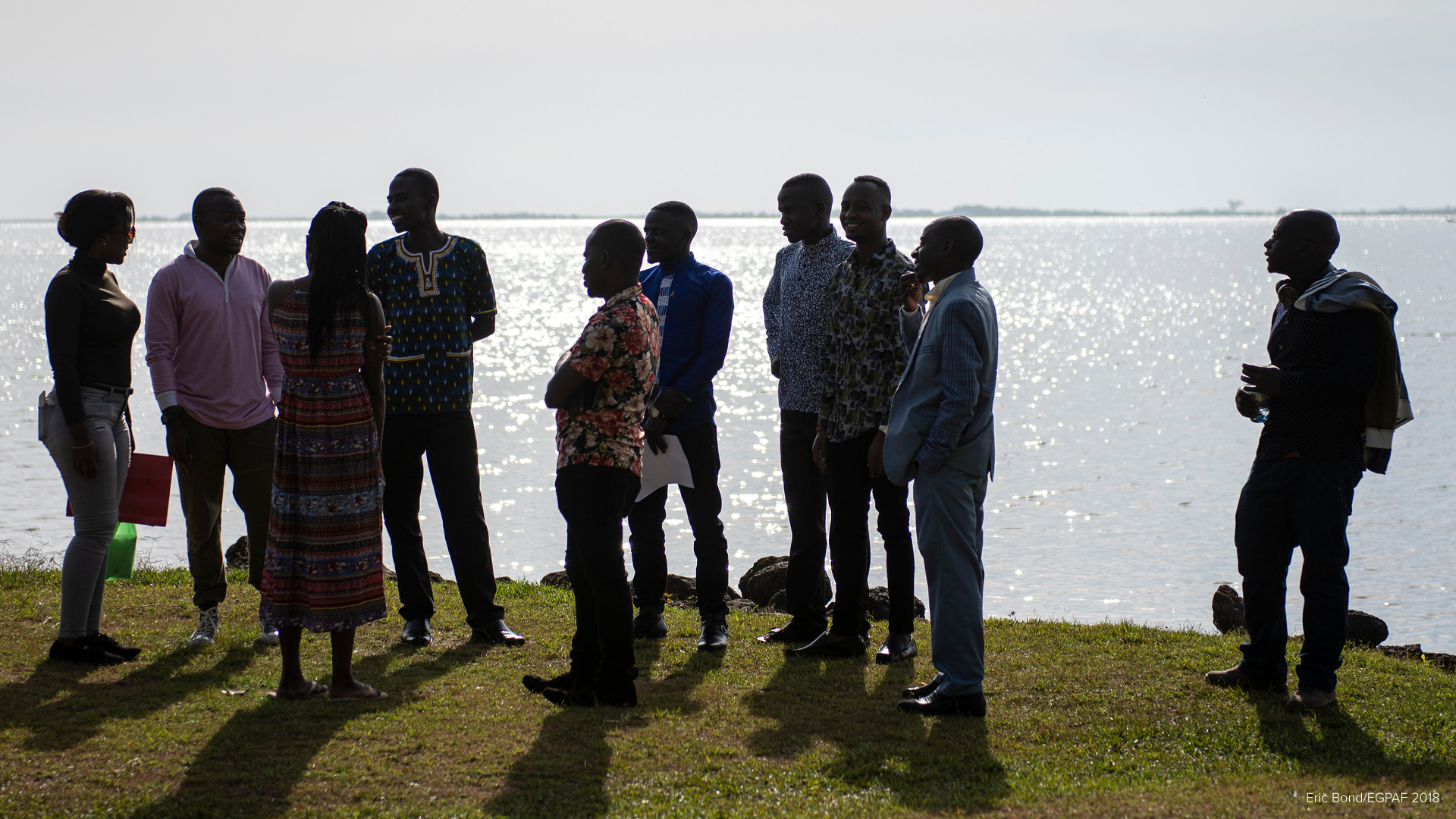In March 2021, the COVID-19 vaccine arrived in Eswatini, a small kingdom in southern Africa. Public health officials breathed a sigh of relief to finally have this tool against this new viral threat—but concern rose again as uptake of the vaccine stalled. To build momentum toward vaccinating the nation, the Elizabeth Glaser Pediatric AIDS Foundation (EGPAF) supported the Eswatini Ministry of Health through the ASPIRE project, funded by the U.S. Agency for International Development (USAID). The one-year project started in April 2022 and ending in March 2023.
Sifiso Mavuso, a 45-year-old self-employed contractor in Northern Hhohho is one of those who had not taken the COVID-19 vaccine. His delay was not because of hesitancy—but due to inaccessibility of the vaccine. To get vaccinated, he was required to travel more than 20 kilometers to Pigg’s Peak. Mavuso said for almost a year, he inquired about the COVID-19 vaccine from nurses at the Mshingishini Clinic, his local health facility. But he was always told that vaccines were not available.
I did not hesitate to take the opportunity. I am here today to take my first dose, and I already feel relieved… Sifiso Mavuso
“The kind of job I do requires me to move from one homestead to the next, which exposes me to COVID-19,” he said, adding that he was lucky not to get infected with COVID-19, even when the cases were still very high. He said that he was excited to learn that the vaccine was finally available at the clinic through the Global Vax Initiative.
“I did not hesitate to take the opportunity,” said Mavuso, as he rolled up his sleeve. “I am here today to take my first dose, and I already feel relieved—though I still have to wait for my second dose,” he said.
Mavuso pushes back against the notion that unvaccinated people are opposed to vaccination. He says that in his experience, availability and accessibility have been significant challenges. He appreciates the Ministry of Health and USAID for bringing the vaccine closer to the people, saying this would help even people living with disabilities to get vaccinated.
Echoing Mavuso, Zandile Masuku, a 40-year-old woman at the clinic said that integrating the COVID-19 vaccine with existing services will raise the number of people getting vaccinating. Masuku said that having the vaccine in the local health facility gives her confidence that the health workers will be able to attend to them in case they experience side effects.
About the ASPIRE Project
The ASPIRE Project received USD $1 million from the USAID to help with the integration of the COVID-19 vaccines into existing service points in the health facilities in the Hhohho and Shiselweni regions. The project placed vaccine mobilizers—staff trained in improving accessibility and uptake of the COVID-19 vaccine service—in 40 high-volume facilities. The project has also placed COVID-19 vaccine nurses and data clerks in selected facilities who can service communities within a five-kilometer radius from their assigned health facilities.
By the end of September 2022, a total of 3210 people has been vaccinated for the COVID 19 through The ASPIRE Project supported facilities.




